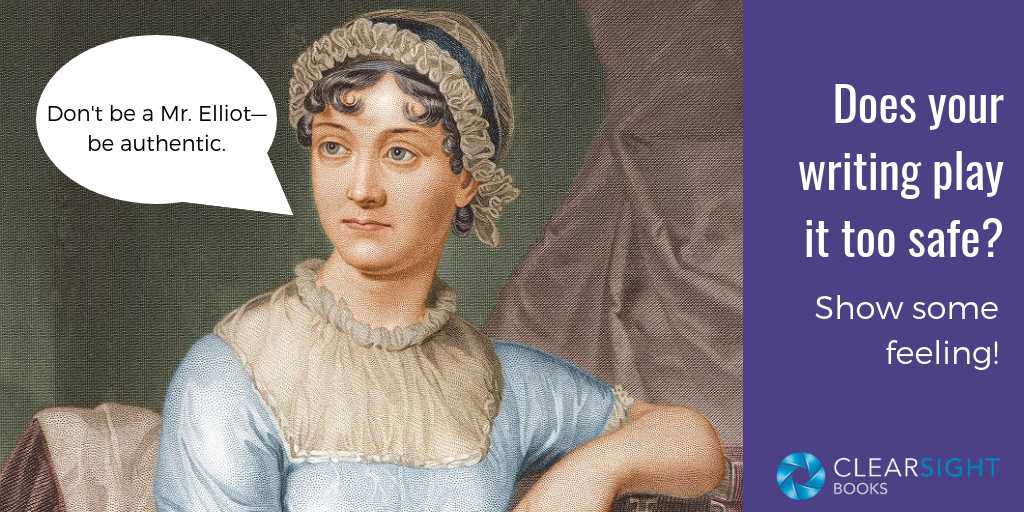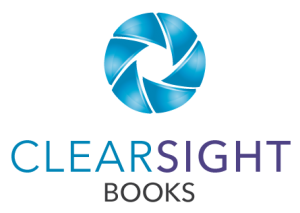
In Jane Austen’s Persuasion*, 27-year-old Anne is courted by Mr. William Elliot. Her surrogate mother, Lady Russell, thinks Mr. Elliot, with his education, manners, and future inheritance, would be a fine match for Anne. (Plus Anne already broke off an engagement with Captain Wentworth and declined Charles Musgrove’s proposal. She’s going to age out of the marriage market soon, right??)
But Anne resists. Yes, Mr. Elliot is charming and genteel, but. . .
There was never any burst of feeling, any warmth of indignation or delight. . . . This, to Anne, was a decided imperfection. . . . She felt that she could so much more depend upon the sincerity of those who sometimes looked or said a careless or a hasty thing, than of those whose presence of mind never varied, whose tongue never slipped.
In a nutshell, he’s not authentic, so she doesn’t trust him.
Being authentic helps people connect
“Authentic” is a suspect word, I’m afraid, used so frequently that it’s become almost banal. But being authentic in your writing—in a book or in other business writing—is so so SO important.
Being a real person—someone who displays real emotions and makes real mistakes—is part of what makes people want to connect with you, whether as a reader or as a client.
How much emotion or personality is appropriate to show in business writing? There’s certainly a balance; after all, it is a professional milieu. But on the whole, I find that demonstrating some personality, and even showing some vulnerability, can connect you more deeply with the people who find your work resonates with them.
Three ways to become more authentic in your writing
There are any number of ways to become more open and real in your writing. Here are three I find especially effective:
- Use humor – I’m a fan of subtle humor and clever word play, but I enjoy some good snark, outright sarcasm, and even dark humor. To me, humor shows how your mind works—how it connects seemingly unrelated things and how it views the world. With humor, always use good sense: if it feels out of bounds, it probably is.
- Take a strong position – We all live in the world; business is a part of it, not separate from it. What matters to you? What do you value? How does it influence the way you do business? Take a fierce stand for what you hold dear.
- Offer self-disclosure – Tell a personal story or give an example from your own life—that time you made a mistake with a client and the lesson you learned. Your family experience growing up and how that turned you into the person you are.
By showing more emotion and personality, might you say something amiss and need to backtrack? Maybe. Might people react negatively to your writing with more candor? Possibly. But for me, if readers don’t respond well to the essence that shows up in my writing, then we may not be the best fit to work together.
I find that the people who respond to my most authentic writing have a stronger depth of connection with me, which leads to an easier working relationship.
To conclude our story…

Anne Elliot as drawn by C.E. Brock (1909, public domain)
Eventually Anne learns that while Mr. Elliot appears genuinely attached to her, he is cold, calculating, and extravagant at others’ expense. Thank goodness she trusted her intuition about his inauthenticity, because that leaves her free to marry her once-spurned-but-never-forgotten suitor Captain Wentworth, who writes perhaps the most authentic love letter ever.
“You pierce my soul. I am half agony, half hope.”
Ah, well, that might be a bit much for your business book, but the next time you find yourself holding something back in your writing, ask yourself why. What will happen if you let your authentic personality show?
My bet? Your readers will appreciate it.
*This year (2018) marks the 200th anniversary of the publication of Persuasion. For this Janeite, that’s meant a couple of rereads, judging student essays about the book, and a trip to KC for the Jane Austen Society of North America’s annual conference. In short, I’ve got Jane on the brain.
Need to talk Jane or authenticity? Give me a call at 919.609.2817.

